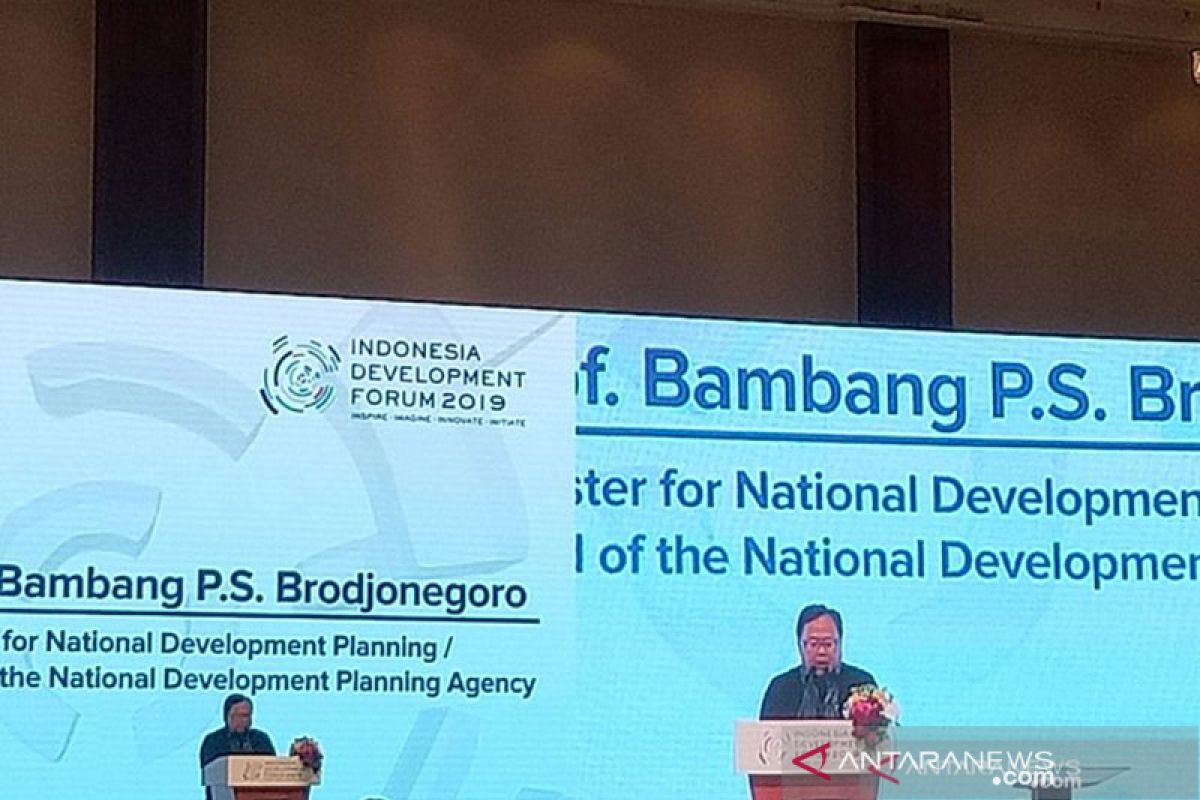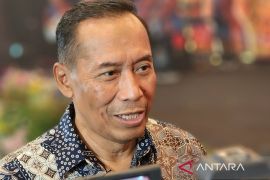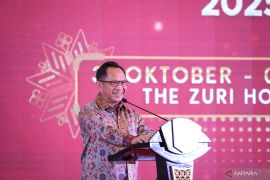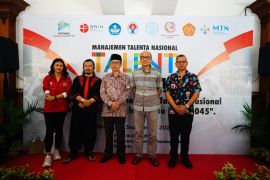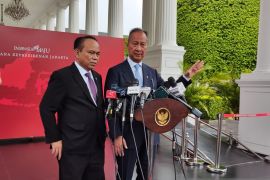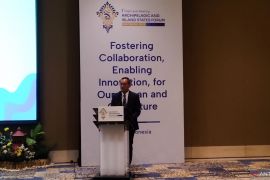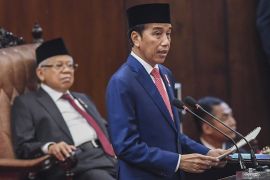Addressing the Indonesian Development Forum 2019 here on Monday, the minister remarked that Indonesia's human resource competitiveness was currently lower than that of other Asian countries.
According to a human resource index, Indonesia ranks 65th out of the 130 countries assessed and is behind Malaysia that came 33rd, Thailand at 40th ranking, the Philippines at 50th ranking, and Vietnam at 64th position.
Several Indonesian workers are engaged in the informal sector and with reportedly low productivity. The manufacturing sector has failed to become the main driver for job creation, he noted.
Related news: Human resource development main key for creative economy: minister
"Hence, labor-intensive sectors, such as tourism, creative economy, and digital economy, should be developed into new growth sources," he stated.
Another challenge is poor access for vulnerable groups, such as women and people with disabilities, to quality job opportunities, he pointed out.
Most susceptible groups work in the informal sector, as they hardly have access to jobs in the formal sector and inclusive working environment.
"Moreover, the dynamism of demographic burden and rapid technological progress also offer opportunities as well as present challenges to Indonesia to improve its competitiveness," he noted.
Related news: Indonesia engages Netherlands to improve tourism human resources
To respond to those challenges, the development of human resources in Indonesia must be carried out in a holistic and integrated manner, he stated.
To successfully produce capable, adaptive, creative, and innovative human resources, the government must provide basic services and social protection; equal health services and quality education; as well as scientific, technological, and innovative developments, he emphasized.
The country's productive sector must be strengthened to create job opportunities and to address poverty, unemployment, and social gap.
"Creating quality job opportunities through structural transformation, improvement in the investment climate, increase in entrepreneurship, improvement in the competitiveness of MSMEs (micro small medium enterprises), and social business, are also among crucial focus areas in the development of human resources," the minister added.
Related news: Jokowi vows to focus on infrastructure and human resources
Translator: Fathur Rohman, Fardah
Editor: Azizah Fitriyanti
Copyright © ANTARA 2019
